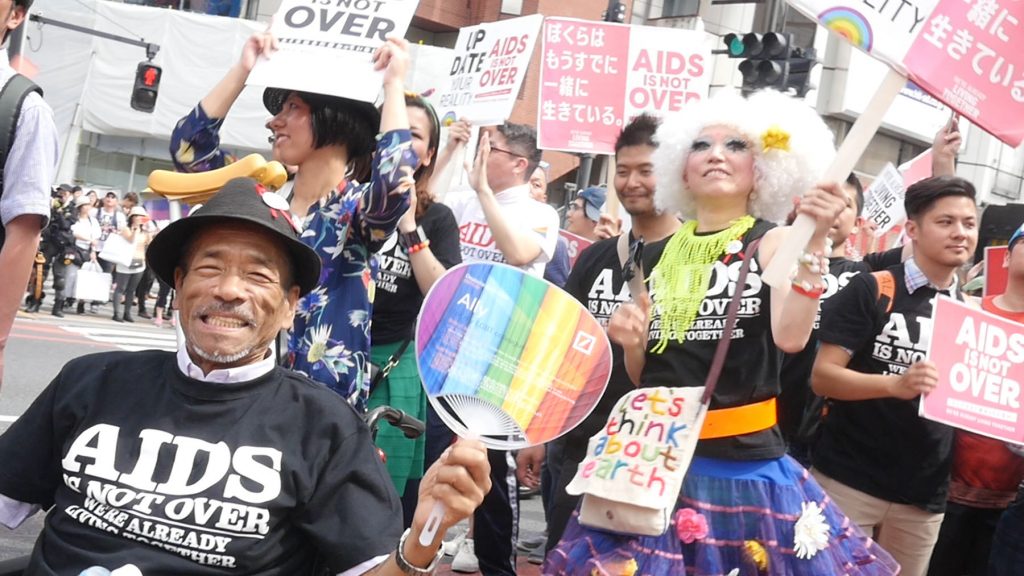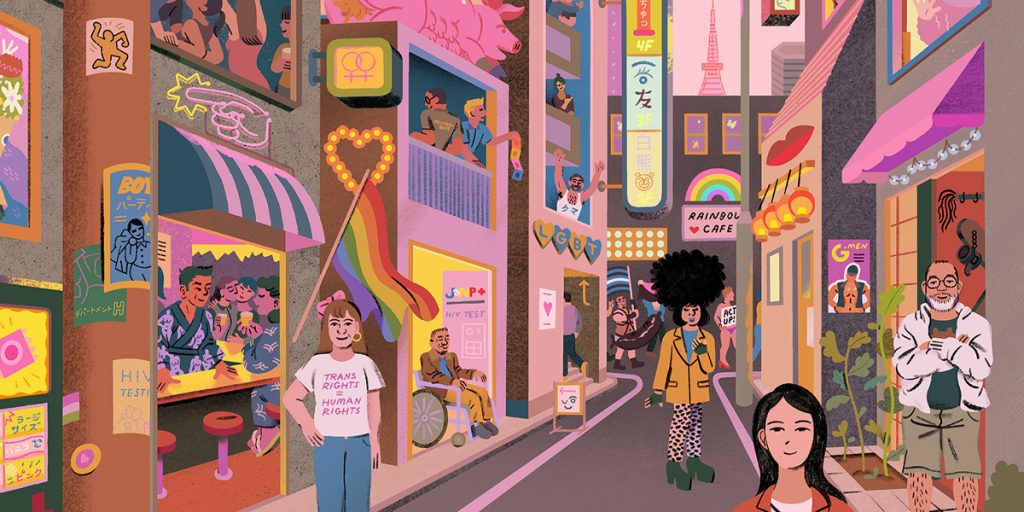While Queer Japan features empathetic representation of queer people in Japan, its strong messaging is unfortunately undermined by flaws in its filmmaking.
From the outset, Queer Japan aims to present a diverse portrait of LGBTQ culture in Japan, and to that end, it does succeed. We are granted the privilege to hear a wide array of people speak about their various experiences being queer in Japan, from a lesbian bar owner to gay manga artists to AIDS awareness activists to a trans politician and much more in between. The outcome is an open-hearted documentary and a piece of earnest and empathetic representation that so much of mainstream media lacks when it comes to the full spectrum of LGBTQ people. However, Queer Japan’s strength is one of its greatest weaknesses. By being so broad in its approach and interviewing such a large swath of people, it lacks a sense of focus it desperately needs.
Not that a large scope is necessarily a bad thing. Arthur Bressan’s landmark documentary Gay USA surveys Pride parades that were happening across the U.S. in June of 1977 and is almost entirely constructed from interviews of hundreds of parade-goers. Even though Gay USA is made up of hundreds of different people and perspectives, it remains focused on a specific place and time. Queer Japan was filmed over three years and jumps from one interviewee to the next seemingly on a whim. There is little connective tissue throughout, and someone who may be unfamiliar with the LGBTQ community in Japan could find themselves easily lost amongst the countless interviewees and events the documentary examines.
Part of the issue with Queer Japan’s lack of focus is that it tries to be an all-encompassing look at Japanese LGTBQ culture. Of course, it is impossible for a single film to capture every single facet of queer existence, and thus it feels too broad overall. If it zeroed in on a tighter cast of characters or was shot in a specific time or place, it might feel more cohesive. As is, by trying to cast as broad a net as possible, the film doesn’t give enough time to many of the compelling and insightful interviewees and glosses over a lot of interesting material.

Another underwhelming aspect of Queer Japan are the strangely recurring flaws in its filmmaking. The audio overall is often fuzzy and ranges in quality, with some interviews featuring too much background noise. This isn’t always the fault of the filmmakers per se, as they are sometimes interviewing people at loud events such as an underground party or a Pride parade. Additionally, the audio will sometimes cut out when the film cuts between different b-roll. That is, the audio will not always transition smoothly between shots and will instead jarringly cut out and then cut back in. Furthermore, the editing feels inconsistent, sometimes even arrhythmic, cutting between b-roll and interview footage with little motivating force, as if the filmmakers did not shoot enough b-roll to compensate for all the interview footage they had.
The end result of Queer Japan feels disjointed and uneven, a film with strong messaging that is undermined by noticeable flaws in its filmmaking. And while the film’s technical prowess is lacking, the people at the heart of it are compelling, charming, and insightful. The diverse group of interviewees the film follows is full of relatable personalities. This is where the film’s greatest strength lies: in giving space for an underrepresented group of people to portray themselves however they please. Unfortunately, the technical side of the movie fails the people it is representing, by taking away the viewer’s attention on the central figures and directing it toward its own faults. It is difficult to stay engaged when the larger picture lacks focus and narrative drive, there is too much jumping from person to person that no one feels adequately developed. There also isn’t a strong thesis to ground the film or propel it forward. Queer Japan has a lot of promise, but regrettably does not live up to it.
Queer Japan opened Nationwide in the U.S. via Theatrical-at-Home & On-Demand December 11th from Altered Innocence.

